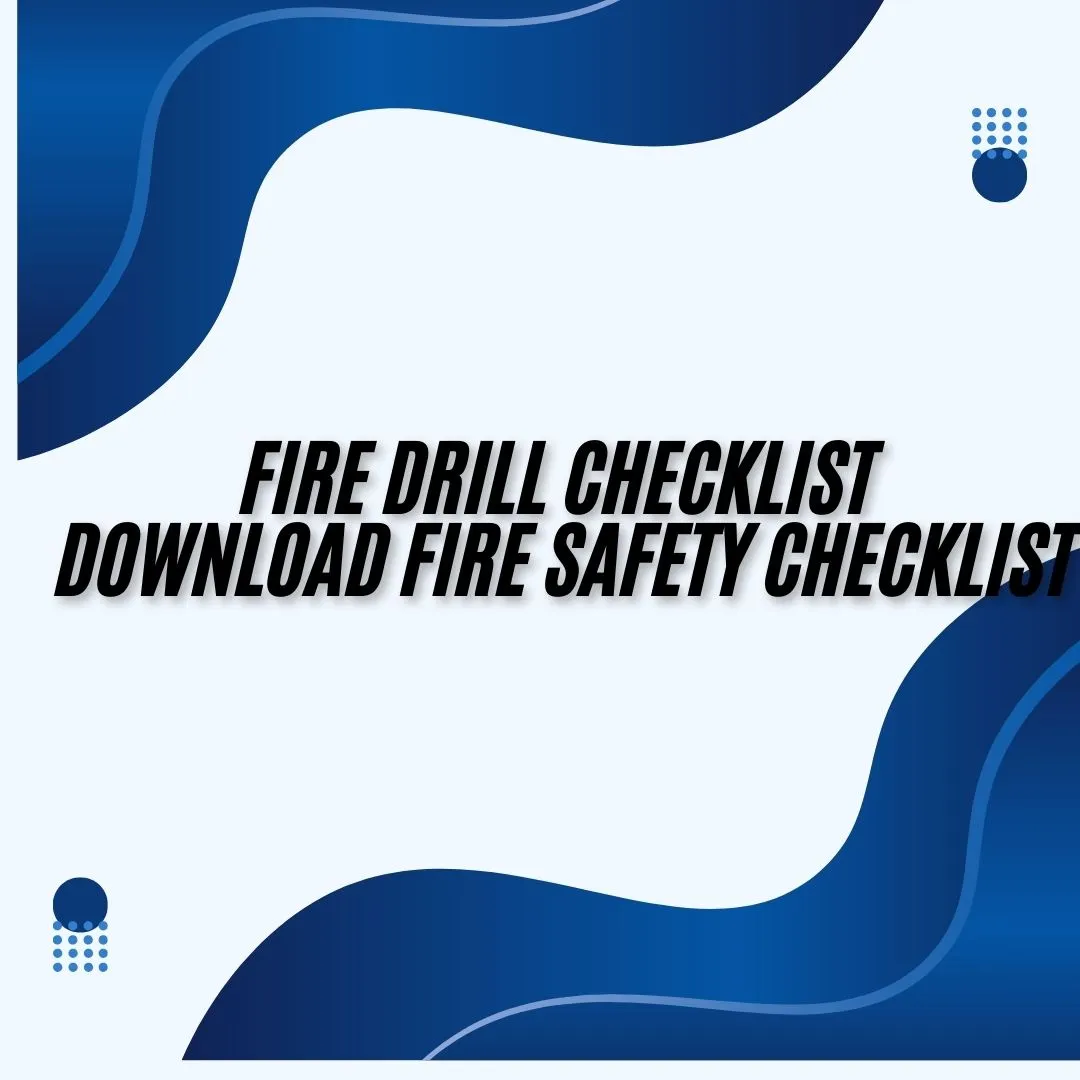Fire Drill Checklist Fire drills serve as necessary emergency preparedness measures to allow workers an immediate safe reaction during fires. Performing fire drill exercises enables organizations to fulfill their occupational safety law requirements and maintain proper order throughout actual emergency situations. Covering the basics, five key steps, and download a checklist template in MS Word.
In this Fire Drill Checklist Post, we’ll cover:
✔ What are the basics of a fire drill?
✔ What are the five steps of a fire drill?
✔ Download Fire Drill Checklist in MS Word
What Are the Basics of a Fire Drill?
The purpose of a fire drill is to assess building evacuation efficiency through simulated emergency procedures. The following components create a successful fire drill:
1. Fire Alarm Activation
The first step of the drill activates the fire alarm system to initiate the procedure.
All staff should instantly detect the alarm noise followed by emergency evacuation readiness procedures.
2. Safe and Orderly Evacuation
All facility members who work or visit should use the identified evacuation routes for safe movement.
All people must use emergency exits as they need to stay away from elevators during evacuations.
3. Fire Wardens and Safety Officers
The essential role of fire wardens consists of safe evacuation guide and ensuring help for people with mobility needs.
Safety officers check for pace compliance during evacuations and monitor the evacuation process.
4. Assembly Point and Headcount
Persons involved in the evacuation must go to the pre-established gathering point.
All personnel must register themselves for the headcount through the Fire safety officer system.
5. Post-Drill Evaluation
The evaluation process should help identify positive aspects together with potential areas for improvement.
The results from the drill will serve as the basis for updating the current fire security procedures.
What Are the Five Steps of a Fire Drill?
Fire drills must follow an organized procedure to achieve maximum safety results during this process. Below are the five key steps:
1. Plan and Prepare
Define fire drill objectives (e.g., response time, evacuation efficiency).
The establishment needs to designate fire wardens together with emergency coordinators.
2. Notify Key Personnel
The drill team must notify fire wardens, emergency teams together with management personnel before starting the exercise.
All facilities must test their fire alarms together with their exits and safety equipment before the drill for functionality.
3. Execute the Drill
The emergency protocol includes sounding the fire alarm for observation of staff reaction patterns.
Guide personnel through emergency evacuation routes.
4. Monitor and Record Performance
Evacuation times should be tracked while identifying all potential hazards.
An evaluation should be conducted to establish whether staff members followed established fire safety procedures.
5. Review and Improve
A team meeting after the drill should be conducted to evaluate successful aspects.
Modify the Fire Drill Checklist for better efficiency in future drills.
You can obtain the Fire Drill Checklist through an MS Word document download.
Our MS Word template allows easy access to a Fire Drill Checklist which enables organizations to perform successful fire drill exercises.
Professional design of workplace Fire Drill Checklists remain critical to protect operational safety against fire hazards. Through regular emergency drills all employees maintain necessary readiness for critical situations, which in turn minimizes potential fire risks and accelerates emergency response performance.

